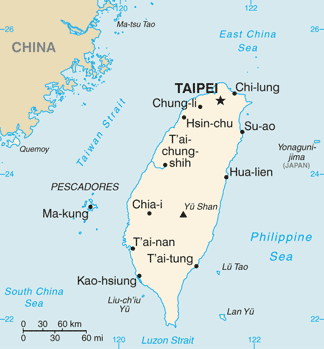The Taiwan Centers for Disease Control (CDC) reported three new confirmed cases of Japanese encephalitis. The new cases were reported in Taoyuan City, New Taipei City and Taichung City.

At present, except for the case in Taichung City, which has been discharged from hospital, the remaining 2 people continue to be hospitalized.
The health unit has gone to the surrounding areas of the three cases to carry out prevention and control measures such as hanging mosquito lamps and trapping vector mosquitoes, and at the same time strengthen the public health education of the local people.
According to the monitoring data of the CDC, there are 16 confirmed cases in reported in Taiwan in 2020 to date.
The Department of Disease Control points out that most people have no obvious symptoms after being infected with Japanese encephalitis, and a few will have headaches, fever or aseptic meningitis. In severe cases, there may be changes in consciousness, inability to distinguish people from time to time, general weakness, and cerebral nerves Functional impairment, paresis, etc., even coma or death. The most effective preventive method is to vaccinate against Japanese encephalitis, reminding the public that they should bring their children over 15 months old to the local health clinics or contract hospitals in order to avoid serious sequelae due to infection.
- Taiwan reports 1st locally transmitted dengue case of 2020
- South Carolina rabies: Cat exposes two people in Honea Path
- Brazil COVID-19 deaths top 80,000, Infections have ‘plateaued’ according to WHO
- Zika: Research team use experimental drug that reduces replication of the virus and prevents microcephaly in mice
- Germany reports ‘swine flu’ case in child
- SARS-CoV-2 vaccine candidate: UK orders ~100m vaccine doses from Valneva
- Ebola cases increase by 3, total now 60 in Équateur Province, DRC
- COVID-19 in the Philippines: 1500 new cases reported, Expert says it’s ‘not comparable to other diseases’

